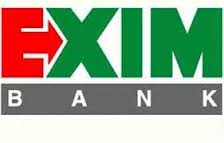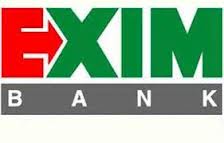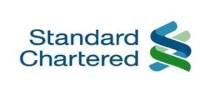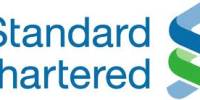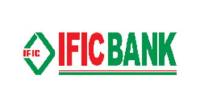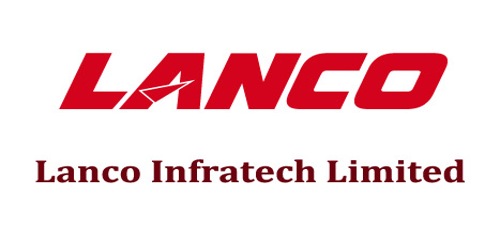Bangladesh Banking Sector Heading Toward Disastrous Situation
Severe liquidity or cash crisis is going on in the banking sector. Banks have become beleaguered to get rid of this liquidity crisis. As immediate solution to crises, banks are increasing their interest rates on deposits. Some are maintaining their with each passing day expenditures after borrowing from the call money market (for inter-bank transaction) at a high rate. In addition, some of the banks are borrowing from Bangladesh Bank through repos (Repurchase Agreements) after pledging the liquid assets like treasury bills and bonds. Their deposit management cost is increasing as they are collecting deposits at a high rate. Some of them are increasing their lending rate to cope up with this additional cost. As the interest rate on bank financing is rising, the cost of investment of the entrepreneurs is also increasing. As a result cost of production is rising. The entrepreneurs are avoiding bank financing as their cost of production is increasing. According to the bank analysts, the situation in the banking sector is not good at all. They have apprehended that if the current situation is not handled properly, the banking sector will face collapse in the future.
Increase of Interest Rate
However, the businessmen have become worried with the increase of the interest rate. They are saying that their cost of doing business is going up with the increment of the borrowing rate of bank financing. As a result the production cost is getting increased. In this situation, the commodity price is getting out of the reach of the mass people. The businessmen are apprehending that the inflation will increase further in the future. The Federation of Bangladesh Chambers of Commerce and Industries (FBCCI) — the supreme organization of the business community — has urged intervention of the Bangladesh Bank on reducing the higher interest rate, keeping the service charges within the tolerable level, and revising the interest rates for the financing in the productive sector.
In this regard, a group of businessmen led by A.K. Azad, chairman of this supreme organization of business community recently had a meeting with Bangladesh Bank Governor Dr Atiar Rahman. The businessmen discussed the overall condition of the trade and commerce of the nation with the Governor in a two-hour-long meeting.
Financing in Productive Sector
FBCCI Chairman A.K. Azad said that after the lending cap on the financing in the productive sector was removed on 9 March the banks were almost competing with each other in increasing the lending rate. Even before 9 March, the maximum lending rate for the business loan was 13 percent; whereas after 9 March the lending rate of 15 to 18 percent is being imposed on the businesses. Some of the banks have taken it to even 20 percent. Because of this, the cost of business is increasing. The FBCCI chairman believes that this will further ignite the inflation. The investment will not grow. No new employment will be generated. As a result the rate of unemployment will rise further. Under such condition, he expected that the central bank will take initiatives to determine the interest rate that will be beneficial to the economy.
Bangladesh Bank Deputy Governor Nazrul Huda has said that the businessmen have requested to redetermine the maximum lending rate. The Bangladesh Bank has informed the businessmen that there is no scope for redetermination of the interest rate. Moreover, the central bank cannot take such measure in the market economy. However, the banks will be requested to keep the interest rate to a tolerable level.
However, the interest rate on bank financing is continuously increasing. Bankers are not paying heed to the protests of the businessmen. Thirty of the local and international banks have increased their lending rate in this April. Among them, some of the banks have increased their interest rate by three to thee and half percent. In April 2011, the rate of interest in business loans has been 18 percent; whereas in March it was imposed maximum at a rate of 13 percent. Among the 30 private commercial banks 26 have increased their rate of interest in the current month. Among the other four there is a specialized bank and three foreign banks.
Businessmen have expressed their grievance at the interest rate increment of so many banks at a time. As per their opinion, the commodity price has already increased due to the rise of fuel price in the international market.
Fund Management of Banks
However, the fund management of the banks are facing cataclysm because of cash crisis. The total liabilities of some of the banks are not matching up with their total assets. As a result bank is losing their capability for settlement of claims including returning the deposits of the depositors.
As per central bank’s guideline, in any particular month, the difference between the total assets of the bank and their claims to be settled must not be greater than 20 percent of their total asset. For example, suppose a bank in a particular month will have to pay off 100 takas (Tk), including earlier committed credit, returning the money of the depositors in the maturity of their deposits, and settlement of import payments. However, in that month, the total earning of the bank from adjustment of credit, proceeds from the maturity of treasury bills and bonds, income from different commissions, and income from the deposits has been Tk 80. So, the difference between the asset and liability would be Tk 20.
This is somewhat acceptable as per the asset liability management guideline of the central bank. Bank may adjust the deficit of Tk 20 from the call money market (the inter-bank market for funds) or through repos from the Bangladesh Bank. But if this difference becomes more than 20 percent, there is possibility of many sorts of hazards for the bank. For example, the captioned bank may face severe liquidity crisis. As a result, the bank loses its capability to settle any of its claims. The bank cannot meet the condition for keeping the mandatory cash reserve with the central bank Cash Reserve Ratio (CRR). The Statutory Liquidity Reserve (SLR) becomes deficient. To resolve the crisis, the banks borrow from the market at a very high rate. In addition, they also collect short term deposits at a very high rate. As a result the fund management cost of that bank increases the consequences into collapse of the overall system of the bank.
One of the high officials of the central bank said that as per the fund management of the banks, a bank has to estimate the probable liabilities in a month. Along with that the amount of total inward deposits at that particular month is also to be estimated. The fund management system of a bank is maintained on this basis.
However, many of the scheduled banks are not following this guideline in the recent time. They are incurring greater amount of expenditures not conforming to their income. As a result different bank are getting excessively dependant on the Bangladesh Bank and the call money market. Many banks are not being able to maintain their day to day expenditures.
An industrialist claiming anonymity informed that at the time of encashment of large amount of check, some banks are not paying within a day. After partially paying they are requesting to come in the next day.
For getting out of this crisis, some of the banks are borrowing from the call money market. Again they are rushing toward the Bangladesh Bank . Every day, they are borrowing more than Tk 90 billion as repo (borrowing for short-term) and under special liquidity support. In some days Bangladesh Bank is even lending Tk 100 billion.
Condition in Banking Sector
Bankers believe that the Bangladesh Bank is entirely responsible for such condition in the banking sector. As per their opinion, in the past seven months of 2010 Bangladesh Bank increased the CRR — The banks’ mandatory rate of reserve to the central bank twice. Because of this, approximately Tk 40 billion came to the central bank from the banks. As a result liquidity crisis began in the banking sector. As a result, in the first month of this year the rate of interest in the call money market climbed up to 170 percent that is recorded as the highest until now.
Dr Saleh Uddin Ahmed, former governor of the Bangladesh Bank, said that the initiative of the central bank to increase CRR was not proper and was not a timely step. He said that the reason was that in December, the banks adjust their entire year’s transaction. In this time, they normally disbursed less amount of credit and collected greater amount of deposits, he stated. As a result, their balance sheet remained in good shape, he said. But as CRR rate was increased at that particular time, banks had to keep their deposited money with the central bank on mandatory basis, he stated. He said that the result had been as it was predicted. According to the analysts, the central bank has to take responsible decisions for getting rid of this situation occurred in the banking sector. Otherwise they are anticipating that the crisis in the banking sector will have a negative impact on the overall economy.
History of EXIM Bank Ltd.
Export Import Bank of Bangladesh Limited was established in the year 1999 under the leadership of Late Mr. Shahjahan Kabir, Founder Chairman who had a long dream of floating a commercial bank which would contribute to the socio-economic development of our country. He had a long experience as a good banker. A group of highly qualified and successful entrepreneurs joined their hands with the founder chairman to materialize his dream. In deed, all of them proved themselves in their respective business as most successful star with their endeavor, intelligence, hard working and talent entrepreneurship. Among them, Mr. Nazrul Islam Mazumder who is an illuminated business tycon in the Garments business in Bangladesh became the Honorable Chairman after the demise of the honorable founder chairman. He is also the chairman of Bangladesh Association of Banks (BAB). Under his leadership, BAB has emerged as an effective forum for exchanging views on problems being faced by the banking sector of Bangladesh and for formulating common policy guidelines in addressing such problems.
This Bank starts functioning from 3rd August, 1999 with its name as Bengal Export Import Bank Limited. On 16th November 1999, it was renamed as Export Import Bank of Bangladesh Limited with Mr. Alamgir Kabir as the Founder Advisor and Mr. Mohammad Lakiotullah as the Founder Managing Director respectively. Both of them have long experience in the financial sector of our country. By their pragmatic decision and management directives in the operational activities, this bank has earned a secured and distinctive position in the banking industry in terms of performance, growth, and excellent management. Under the leadership of Mr. Lakiotullah, the Bank has migrated all of its conventional banking operation into Shariah Based Islami Banking in the year July 2004.
Mr. Mohammed Lokiotullah left the Bank on 3rd June, 2007, there after Mr. Kazi Masihur Rahman became Managing Director on 4th June, 2007. Mr. Rahman served in the bank for next five years. Under his leadership, the bank has been placed on a state of the art centralized IT platform with two modern data centers where world renowned core banking software TEMENOS T24 is running along with some alternate delivery channels like ATMs and SMS banking.
On 25th August, 2011, Mr. Md. Fariduddin Ahmed has joined in the bank as Managing Director. With his long experience in the Shariah Based Islami banking in Bangladesh, EXIM Bank is going to take a new shape where IT-enable banking service will spread in the market.
Our Vision
The gist of our vision is ‘Together Towards Tomorrow’. Export Import Bank of Bangladesh Limited believes in togetherness with its customers, in its march on the road to growth and progress with service. To achieve the desired goal, there will be pursuit of excellence at all stages with climate of continuous improvement, because, in Exim Bank, we believe, the line of excellence is never ending. Bank’s strategic plans and networking will strengthen is competitive edge over others in rapidly changing competitive environment. Its personalized quality services to the customers with trend of constant improvement will be the cornerstone to achieve our operational success.
| Our Mission | ||||||||||||||||||||||||||
| The Bank’s mission gives emphasis to: | ||||||||||||||||||||||||||
|
Slogan
Corporate Slogan of EXIM Bank- “Together Towards Tomorrow”:
EXIM Bank Ltd. as the name implies, is not a new type of bank in some countries on the global, but is the first of its kind in Bangladesh. It believes in togetherness with its customers, in its march on the road to growth and progress with services. To achieve the desired goal, it has intention to pursuit of excellence at all stages with a climate of continuous improvement. Because it believes, the line of excellence is never ending. It also believes that its strategic plan and business networking will strengthen its competitive edge over in rapidly changing competitive environment. Its personalized quality services to the customers with the trend of constant improvement might be cornerstone to achieve its operational success.
Objective
As we, all know that Bangladesh is now an integral part of global market. As such, there is an urgent requirement for Bangladesh to place the traditional banking practices in harness with the global trades of a free market economy by following international banking customs, practices and standards. Today clients of a bank in Bangladesh are exposed as well as international markets. They have to stay update with their practice and standards to meet the demands of achieving harmony in the high standards of a free economy. Hence, by getting into both corporate and retail banking and rapid innovation and networking the bank believes that it can accomplish its goals.
EXIM Bank fully appreciates the importance and implication of the rapidly emerging competition in the banking and finance sector of Bangladesh. It intends financing its customer suited to his or her place in the market. In this regards EXIM Bank emphasizes in its employment the software aspects of human resource capability. It also emphasizes competence among its banking professional to cater to varied customer requirements to the modem time. The core objectives are:
To carry on, transact, undertake and conduct the business of banking in all its branches and to transact and do all matters and things incidental thereto in Bangladesh and abroad.
To receive, borrow or raise money on deposits, loan or otherwise, upon such terms as the Company may approve and to hive guarantees and indemnities in respect of all debts and contracts.
To establish welfare oriented banking systems.
To play a vital role in human development and employment generation.
To invest money in such manner as may from time to time be thought proper.
To carry on the business of buying and selling bullion, gold and other valuable assets.
Provide defect free customer service
Provide efficient service
Maintenance of corporate and business ethics
Make it stock superior and rewarding to the customer
Sound capital base
Enhance share holders’ wealth
Function
- The main task of EXIM bank is to accept deposit from various customers through various accounts.
- Provide loan on easy terms and condition.
- The bank invests its fund into profitable sector.
- It transfers money by demand draft, pay order, online, Telegram transfer.
- The bank is doing the transaction of bill exchanges, cheque etc on behalf of the clients.
- EXIM bank assists in the foreign exchange by issuing LC.
- Above all, EXIM bank helps the businessman financially by giving discount facility for bill of exchange and by providing the facility of letter of guarantee.
| Corporate Culture |
| During the last two decades Corporate Culture has become an important theme in business as an intangible concept which clearly plays a meaningful role in corporations, affecting employees and organizational operations. It is not the only determinant of business success or failure, a positive culture can be a significant competitive advantage over organizations with which a firm competes. We, as an amenable bank, believe if the employees identify with the culture, the work environment tends to be more enjoyable, which boosts morale and leads to increased levels of teamwork, sharing of information, and openness to new ideas. |
Awards & Achievements
| First private sector bank to open exchange house in UK In order to ensure delivery of smooth and most reliable le remittance services to NRBs leaving and working in UK, EXIM bank has started its poerating of its wholly owned subsidiary “EXIM exchanged company (UK) Ltd” on June 30, 2009 on London, UK one of the oldest destination for the expatriate Bangladeshi. it is the first exchanged house owned by a Bangladeshi private bank.
Bangladesh Bank governor Dr. Atiur Rahman inaugurated the exchanges house as the chief guest while H.E. Dr. M. Sayeedur Rahman Khan, Honorable high commissioner, Government of people republic of Bangladesh, was present in the program as special guest. Chairman of EXIM bank and director EXIM exchanged company (UK) Ltd. Mr. Mohammad Nazrul Islam Mazumder presided over the program.
Deputy High Commissioner Mr. Allahma Siddiki, Director of EXIM bank Mr. Nurul Fazal Bulbul, Mrs. Nasrin Islam, Mr. Abdullah Al Zahir Swapan, Mr. Mohammad Sahidullah, Managing director of EXIM bank, Mr. Kazi Moshiur Rahman and local elites were also present in the opening ceremony. | |
| Implementation of the world renowned Core Banking Software (TEMENOS T24)As the branches of EXIM bank have been using branch based banking software named Tc Bank 2000 developed by Leads Corporation, Bangladesh. In order to replace the software with a centralize Shariah based Islami banking software, The bank management has made an agreement worth TEMENOS Switzerland to implement its world renowned core banking software T24. Implementation of this software has been started at the end of the year 2007. A team comprising very skilled employees from both business and IT of the bank has been working day and night for implementing the software. The team has been given training on the software from Chennai, India. Working very hard with the foreign consultant dutong the last one and half year, this team has successfully migrated our elephant road branch and head office on 03.05.2009 after completing gap analysis, customization of the software and User Acceptance Test (UAT). The elephant road branch and head office are now running on T24. This centralized software is capable enough to provide all sorts of electronic banking service to the valued customer through various electronics cannel. | |
| Conversion from Conventional Banking to Shariah Based Islami BankingIt is a great pleasure that by the grace of Almighty Allah, the bank migrated at a time al the branches from its conventional banking operation into Shariah Based Islami Banking Operation without any trouble. Lot of uncertainties and adversities were there into this migration process. The officers and executives of our bank motivated the valued customers by counseling and persuasion in light with the spirit of Islam especially for the non-Muslim customers.
Out IT division has done the excellent job of converting and fitting the conventional business processes into the processes based on Shariah. It has been made possible by following a systematic procedure of migration under the leadership of honorable managing Director. |
Corporate Social Responsibilities
At least 2% of our annual profit of every year is put aside for the foundation to conduct Corporate Social Responsibilities(CSR) activities. The mainstream CSR activities that are carried out through this foundation are:
| Healthcare service. | |
| Scholarship program for brilliant poor student | |
| Education Promotion Scheme | |
| Helping people affected by natural calamities | |
| Helping people in slum areas | |
| Donation to educational institutions to setup computer lab | |
| Beautification of DhakaCity |
